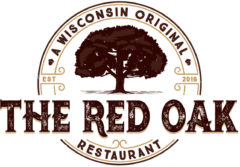Orchard Dog Farms
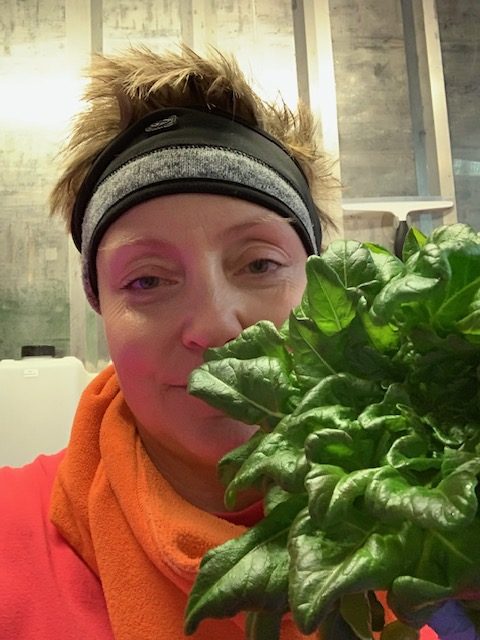
Meet our newest farm partner Orchard Dog Farms in Bristol, owned and operated by Teri Knuese and her husband Tom. Teri and her husband moved to Bristol in 2000 onto a small orchard growing 20 different varieties of apples. Each year Teri and her husband donate about ten thousand pounds of apples to the Racine County Food Bank.
After really wanting to grow a garden Teri realized that it was going to be a lot of work for just one person to maintain each year but she was determined to find an easier way to produce vegetables. Taking her love for salads in account she found a way that was both easy on her back and produced a higher yield: container farming. While doing some research online Teri stumbled across a man out of Twin Lakes who was selling a Freight Farm. Freight Farms is the leading manufacturer of hydroponic container farming empowering anyone to grow food for their community. Freight Farms allows Teri to grow locally and all year long without additional heating.
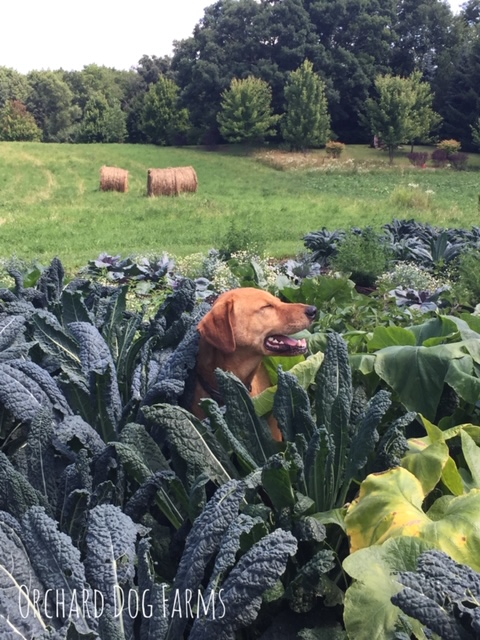 In June 2018 the Freight Farm container arrived at Orchard Dog Farms. By September 28th 2018 Teri had her first harvest. Freight Farms use 90% less water than soil farms and while most lettuce grown outside averages about 3.5 gallons of water Teri’s lettuces only require 0.1 gallon. The container can produce 100lbs of lettuce per week or 2-4 tons per year. This is equivalent to 2 acres of land in a very compact space. Not only do containers use less water but they produce significantly less waste as well. Because of their design, hydroponic containers recycle the extra water back into the main tanks. There is also no harmful herbicides or pesticides used on the plants.
In June 2018 the Freight Farm container arrived at Orchard Dog Farms. By September 28th 2018 Teri had her first harvest. Freight Farms use 90% less water than soil farms and while most lettuce grown outside averages about 3.5 gallons of water Teri’s lettuces only require 0.1 gallon. The container can produce 100lbs of lettuce per week or 2-4 tons per year. This is equivalent to 2 acres of land in a very compact space. Not only do containers use less water but they produce significantly less waste as well. Because of their design, hydroponic containers recycle the extra water back into the main tanks. There is also no harmful herbicides or pesticides used on the plants.
There are three stations that the lettuce goes through in a hydroponic container. The first two stations occur in the nursery. Seedlings are housed in containers on stainless steel tables for the first 2-4 weeks of their lives. These tables are where Teri will also transplant, harvest and package the lettuce as well. Seedlings are housed on the germination shelf where they spend about 1 week under an automated LED light until all the seeds have sprouted. Next, they move up to the seedling trough. They will be in the trough for about 2 weeks and will receive water and light until they are ready to be transplanted. There are containers next to the tables to help nourish the seedlings with nutrient-rich water and they’ll grow under 3:1 red-to-blue LED light panels.
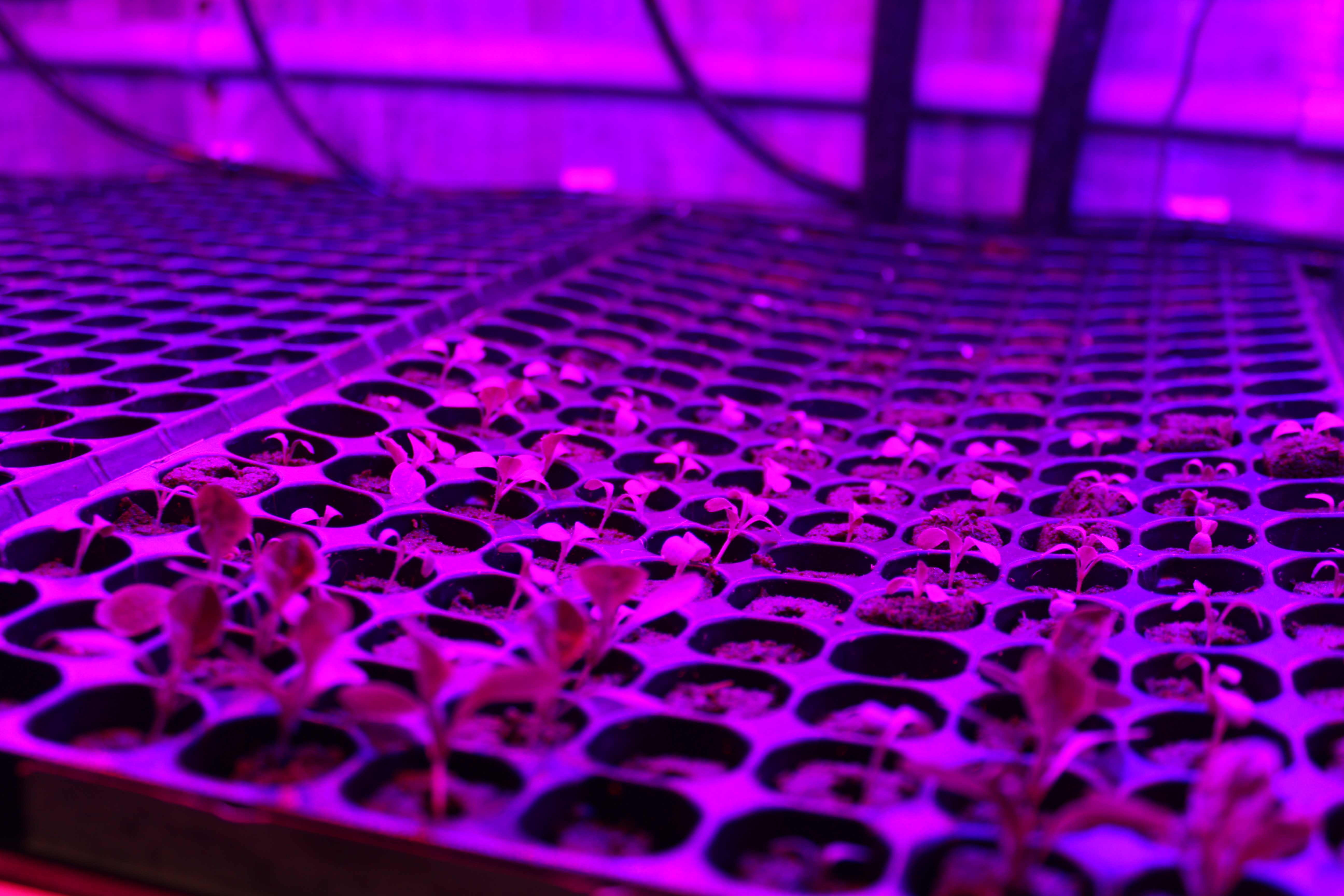

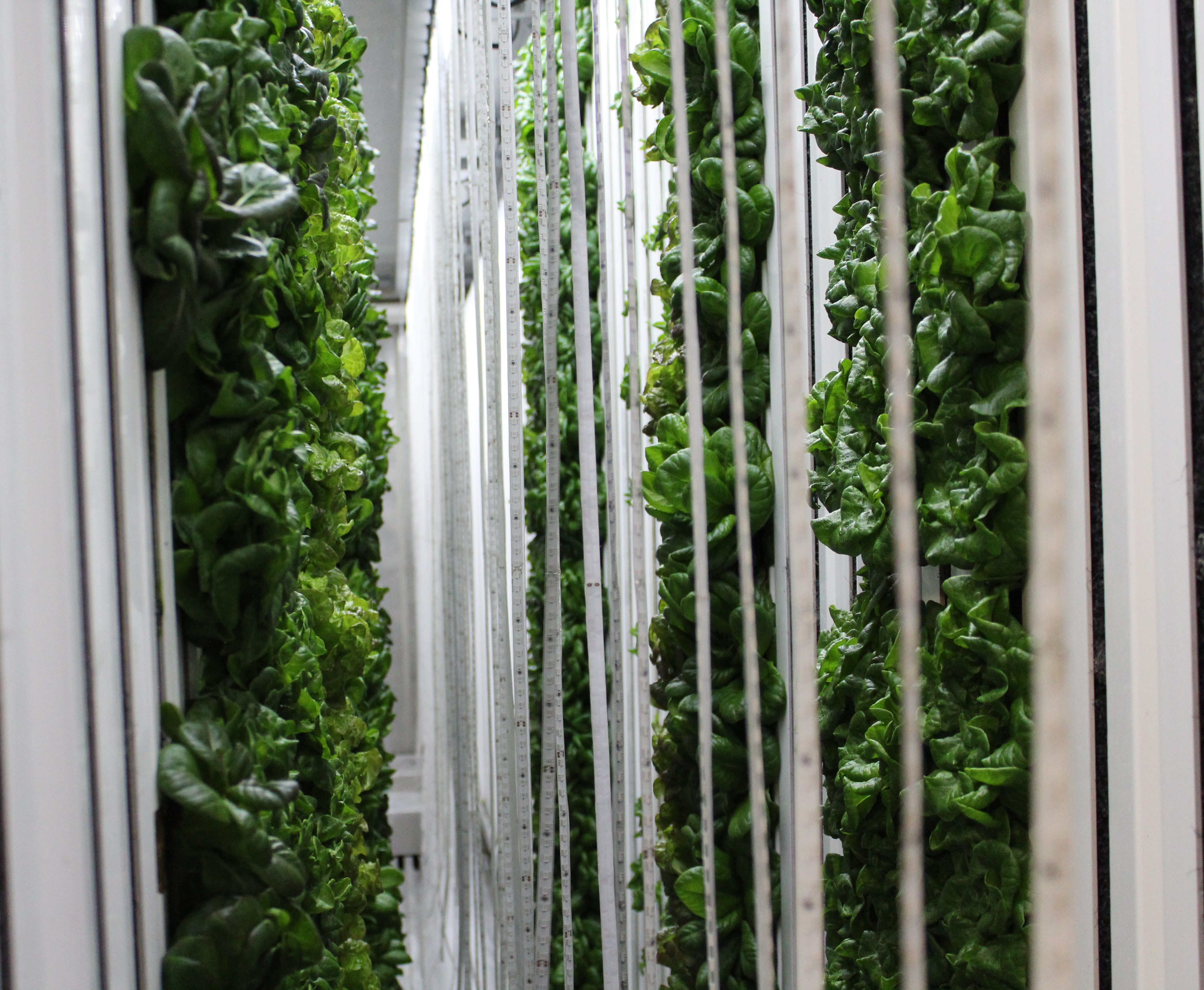
Once the seedlings have graduated out of the nursery they will then be transplanted to the vertical towers where they are planted one above the other. Teri has 128 towers on each side of the container and each tower holds about 14 lettuce heads. Once the towers are placed back in the main growing area, nutrient-rich water is then dripped from the top of the towers down through a felt wick that then feeds the individual plant roots. Any excess water that the plants don’t need will fall down to the gutter system underneath the towers flowing back to the main tank. The plants in the main growing area will receive the ideal amount of light they need for photosynthesis via a computer controlled system that simulates day & evening via LED lighting. The floor, ceiling and walls are all insulated to allow the climate automation system to maintain an ideal growing environment for the plants by taking readings inside the container. Teri can access the container’s data and adjust nutrients or light from anywhere via a smart app on her phone which allows for constant contact with the plants.
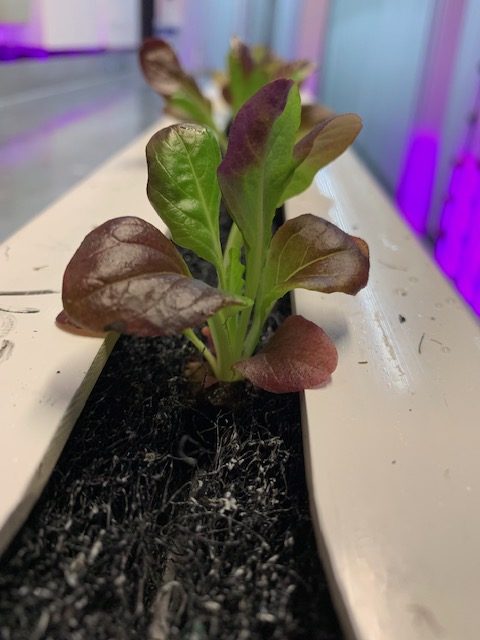 When the plants are ready to be harvested Teri takes down the towers to remove the entire plant with roots intact. This is ideal for lettuces. She then packages each separate lettuce type into bags with little vented holes. These holes provide circulation keeping the plants from wilting and enabling the lettuce to last longer. Because she is able to harvest and then deliver the lettuce all in a few hours the plants have a higher nutritional value and are at their peak freshness. They don’t sit in cold storage or transport which causes some vegetables to lose up to 50% of their vitamin c during the transport process.
When the plants are ready to be harvested Teri takes down the towers to remove the entire plant with roots intact. This is ideal for lettuces. She then packages each separate lettuce type into bags with little vented holes. These holes provide circulation keeping the plants from wilting and enabling the lettuce to last longer. Because she is able to harvest and then deliver the lettuce all in a few hours the plants have a higher nutritional value and are at their peak freshness. They don’t sit in cold storage or transport which causes some vegetables to lose up to 50% of their vitamin c during the transport process.
Teri and her husband supply The Red Oak Restaurant with the lettuces we use all year long and allows us to locally source our salads throughout the winter months. Make sure to follow her on Instagram @provencalfarmer.
